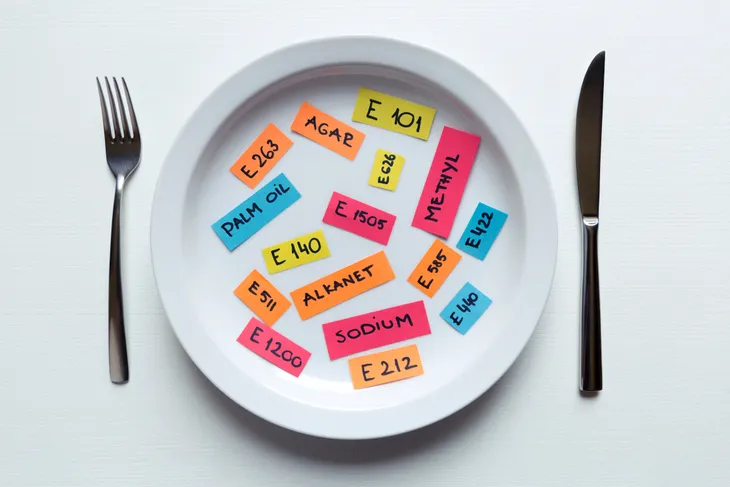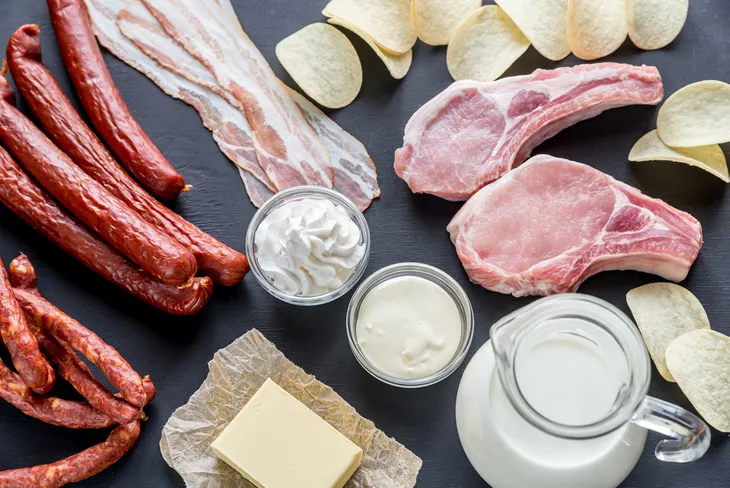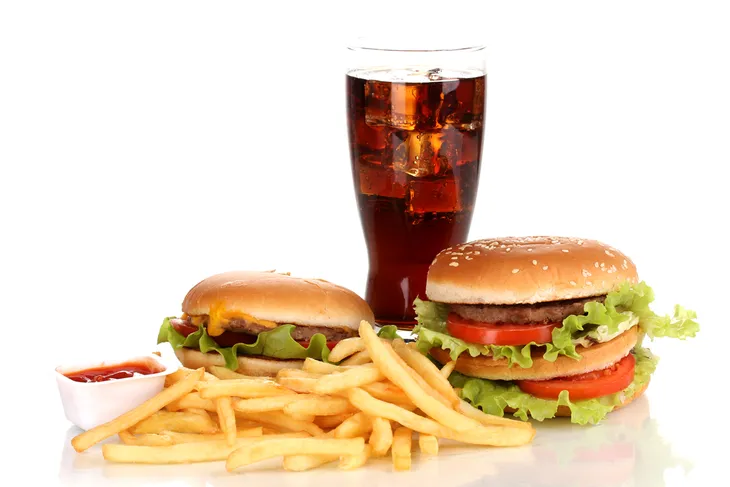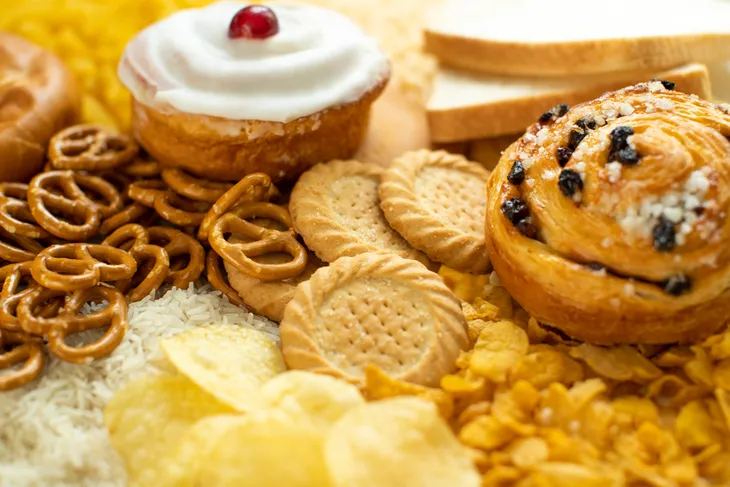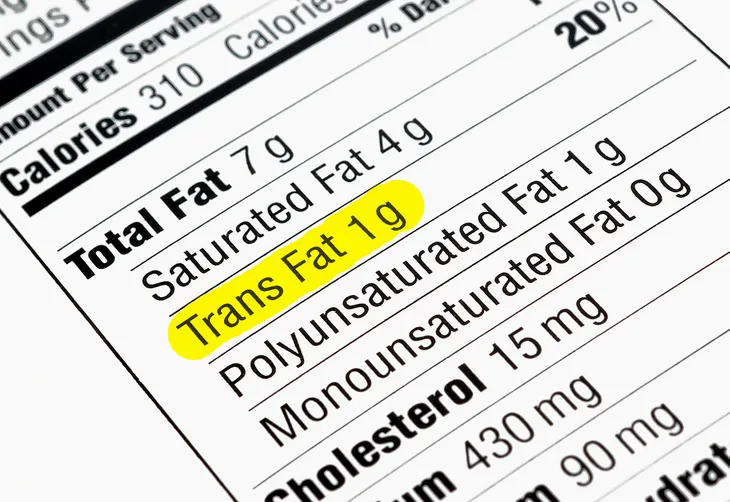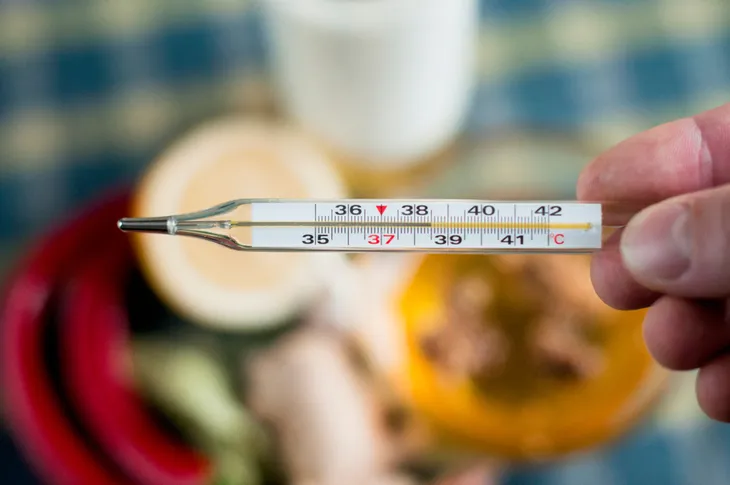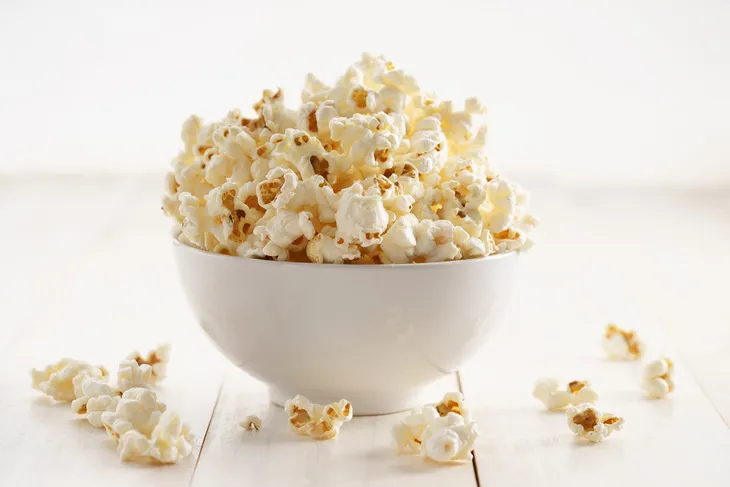When it comes to you and your family’s health, making the right food choices is a top priority. Food is nourishment for the body, but it can also be harmful. By choosing the right food you can feel better both physically and mentally. While it can be easy to spot healthy foods like vegetables, fruits, nuts, and whole grains, it’s not always easy to figure out which foods are unhealthy, or even downright dangerous.
To help keep your body healthy and know what foods to avoid, we’ve compiled a list of the 12 worst foods for your brain. Check it out:
Want diet & nutrition content delivered straight to your inbox? Sign up for our exclusive diet & nutrition newsletter!
Food Additives
Processed food additives are everywhere like coffee creamers, ice cream, and nut-based milks. To avoid dangerous additives, you’ll need to become good at reading labels. This can be a hard habit to get into, but once you establish this new habit, it’ll become second nature.
Two of the worst additives are polysorbate-80 and carboxymethylcellulose. They can be especially harmful to your brain. According to Forbes, “research has shown that these additives can drive inflammation and disrupt metabolism.” It has been shown that Alzheimer’s disease is related to changes in brain metabolism which suggests these food additives should be avoided. To make things easier for you, look for whole foods that haven’t been processed or packaged to ensure you’re safe from additives.
Canola Oil
Cooking oils are a great way to get healthy fats into your diet. Many people use them on their salads, roasting vegetables, and cooking meat. Canola oil is an inexpensive vegetable oil that comes from rapeseed. Its versatility and low saturated fat levels make it a popular choice among many health conscious people. Yet, new research has shown that it is not the best option when looking at brain health.
Researchers looked at how canola oil affected the learning and memory in mice and the results weren’t positive. “Compared with mice fed a normal diet, the researchers found that mice fed a diet rich in canola oil experienced weight gain and significantly worse working memory,” reports Medical News Today. We suggest swapping out canola oil for a more brain healthy option like avocado oil or olive oil.
Sugar
Who doesn’t love a little sugar in their food!? Candy, cookies, doughnuts, sugary cereals, they are all delicious. Not surprisingly, too much sugar can really affect your brain and body. The added sugar in our diet causes our pancreas to work overtime producing the hormone that regulates glucose in the blood and can cause inflammation in the body.
What’s even worse, too much sugar can “…cause the hippocampus, the brain’s memory control center, to become inflamed, meaning it can’t work at 100 percent,” says Women’s Health. The source also reports that large amounts of dietary sugar have been linked to depression. We understand it’s hard to completely remove sugar from your diet, but it might be time to ditch any products with added sugar.
Saturated Fat
Saturated fats are fats that stay solid at room temperature. such as animal fat, palm, and coconut oils. A little saturated fat in your diet is fine, the problem occurs when your intake climbs so high that your brain can suffer.
When you consume too much saturated fat you are decreasing “…the brain’s ability to fight the formation of Alzheimer’s-linked brain plaque,” says Women’s Health. The magazine also reports that saturated fat can hinder your ability to create new memories.
Fast Foods
While it’s the most convenient and accessible, fast food is also one of the worst food choices for our health. This food is often fried and rich in unhealthy carbohydrates that work to slow down the body both physically and mentally. Fast food might seem satisfying when you’re hungry, but it most certainly will not provide any nourishment, particularly for the brain.
Frequent fast food intake has been linked to depression. The added saturated fat, sugar, sodium, and other processed components make fast foods one of the worst foods for your brain. To help curb cravings, carry a bag of nuts or dried fruit. Eliminating fast food can be difficult, but the longer you go without it, the more the cravings subside.
Processed Carbs
If you’re hungry and in need of a filling snack, bread and processed grains are a go-to. However, highly refined grains like white bread can negatively affect your brain. Multiple studies have shown this type of food causes brain inflammation. Repeated episodes of inflammation may cause degenerative brain diseases like Alzheimer’s disease, according to Healthline.
In order to keep your brain and body healthy, look for unprocessed foods that have a low glycemic index (GI). The GI index ranks carbs from 0 to 100 based on how they raise your blood sugar level. Foods that won’t significantly raise your blood sugar are whole grains, vegetables, fruits, and beans.
Trans Fat
It wasn’t that long ago that trans fats were a hot button topic. While it may have lost some momentum, it’s still as important as ever to keep it out of your diet. Trans fats can naturally be found in some animal products and artificially processed oils called hydrogenated oils. It’s these artificially processed trans fats that need to be avoided. According to Healthline, “studies have found that when people consume higher amounts of trans fats, they tend to have an increased risk of Alzheimer’s disease, poorer memory, lower brain volume and cognitive decline.”
You’ll find trans fats in frosting, cookies, and margarine. Switch out your prepackaged foods for homemade snacks. We love using whole wheat flour to lighten up recipes. Try avocado oil instead of butter or margarine. And homemade frosting with powdered sugar and a little milk can be an easy and delicious substitute.
Aspartame
Foods and drinks like diet soda, chewing gum, and ice cream can contain the artificial sweetener called aspartame. It goes by the brand names of Equal or NutraSweet. Aspartame contains phenylalanine, methanol, and aspartic acid. Healthline reports, “phenylalanine can cross the blood-brain barrier and might disrupt the production of neurotransmitters. Additionally, aspartame is a chemical stressor and may increase the brain’s vulnerability to oxidative stress.”
You’ll find medical studies that claim both the safety of and the dangers of aspartame. If you’d like to play it safe, try to avoid the artificial sweetener. Use small amounts of real sugar instead, or use natural sweeteners like honey or maple syrup. These will provide the sweetness you want without the potential adverse effects to your brain.
Alcohol
It’s no secret that too much alcohol can be detrimental to your health. Those who imbibe in a few drinks might have slurred speech, poor reaction time, or difficulty walking. These are typically short lived and subside after the last drink. Yet, this makes it clear how even after a few drinks alcohol can change your brain.
If alcohol consumption becomes high in both frequency and volume permanent brain damage can happen. The National Institute on Alcohol Abuse and Alcoholism says two conditions that can result from alcoholism are a “short-lived and severe condition called Wernicke’s encephalopathy and a long-lasting and debilitating condition known as Korsakoff’s psychosis.” It’s scary to believe that alcohol can lead to such serious consequences. But knowing all the possibilities empowers you to make the right decisions and get the help you need if necessary.
Foods High in Mercury
Mercury is a neurotoxin found in some fish. Too much mercury can have devastating effects on pregnant women and young children. It can affect brain development and harm developed brain cells. High mercury containing foods are fish like shark and swordfish, tuna, orange roughy, tilefish, and king mackerel, reports Healthline.
Children and pregnant women should limit or even avoid eating these high mercury containing fish. Healthy adults are recommended to eat two to three servings a week of fish. But if the fish is high mercury labeled then one serving a week is the max recommends Healthline. Fish is a great source of protein and other nutrients, so don’t let mercury scare you from eating any fish. Do your research before you buy your fish to make sure yours is safe for the whole family.
11. Microwave Popcorn
You probably didn’t expect to see microwave popcorn on this list! This family favorite food that is often used for snacking during a movie can be dangerous for the brain. “Microwave popcorn contains diacetyl, a chemical that may increase amyloid plaques in the brain. Research has linked a buildup of amyloid plaques to Alzheimer’s disease,” states Alzheimer’s.net.
If you aren’t ready to give up your nighttime popcorn habit, now might be the time to invest in a stovetop popcorn popper. Making your own popcorn at home instead of buying the microwave packs is an easy, safe, and inexpensive option. Or even better, try cut up bell peppers or carrots to satisfy your crunch craving while giving you an added nutritional bonus.
12. Processed Meats
By now, you’ve probably noticed a theme. Most of these foods are processed in some way. And it turns out meat is another food that when processed, can be bad for your brain. Processed meats like bacon, smoked turkey, and smoked ham contain nitrosamines. According to Alzheimers.net, nitrosamines trigger the liver to make fats that can be toxic to the brain.
While purchasing meat, read the labels. It is possible to find deli meat that doesn’t contain nitrosamines. You could also opt to purchase meat directly from a butcher or deli rather than opting for pre-packaged or processed options. There are also multiple meat substitutes available made of soy and other plant based products. Just make sure the meat substitutes aren’t filled with sugar and other processed foods!

